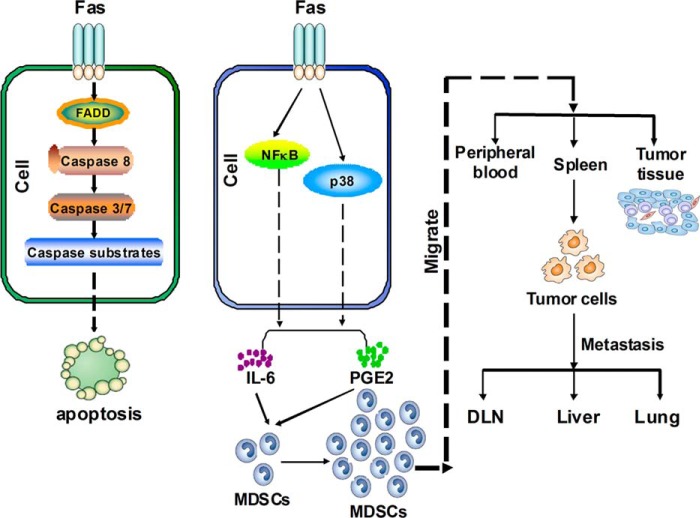FIGURE 9.
Working model for Fas signaling in cancer-related inflammation and breast cancer progression. Fas ligation induces cell apoptosis of sensitive cells via a classical apoptosis signaling pathway (left panel, such as BNL CL.2, etc.). However, in Fas signal/apoptosis-resistant cells (such as breast cancer cells, 4T1, or EMT6 etc.), Fas ligation does not induce apoptosis and instead promotes breast cancer cells to produce more IL-6 and PGE2 via activation of the p-p38 and NF-κB pathways, which significantly increases systemic (in the peripheral blood and spleen) or local (in the tumor microenvironment) recruitment of MDSCs in vivo. In this case MDSCs inhibit innate and adaptive immunity and promote tumor growth and metastasis (right). Therefore, blockade of Fas signaling can suppress breast cancer progression, indicating that Fas signaling-initiated cancer-related inflammation in breast cancer cells may be a potential target for treatment of breast cancer.

